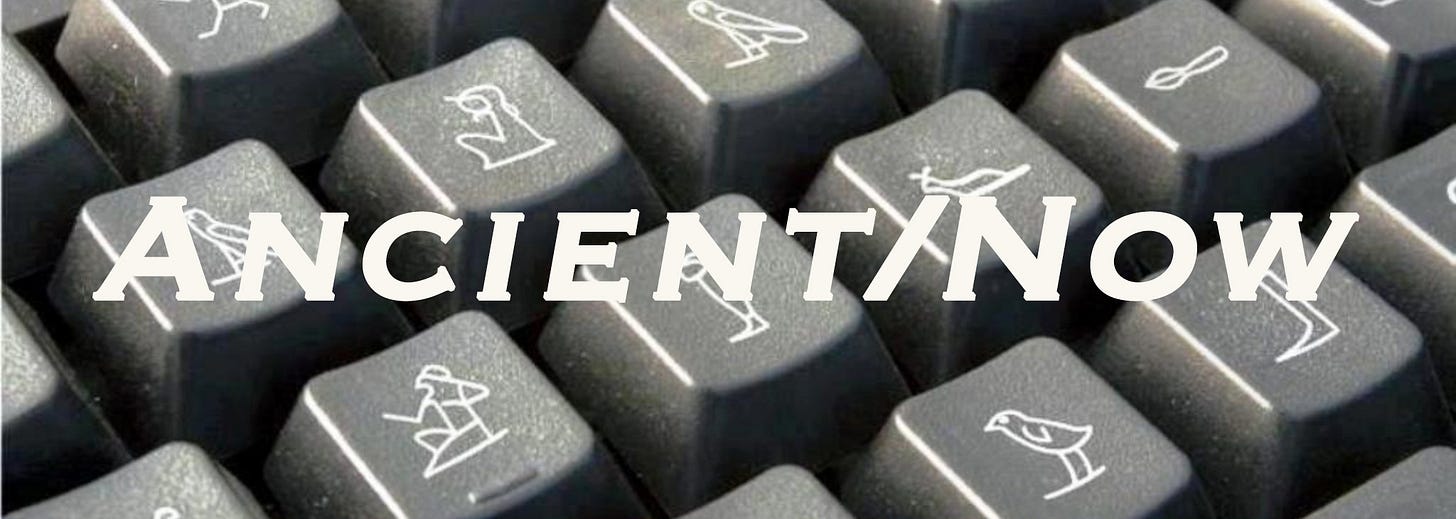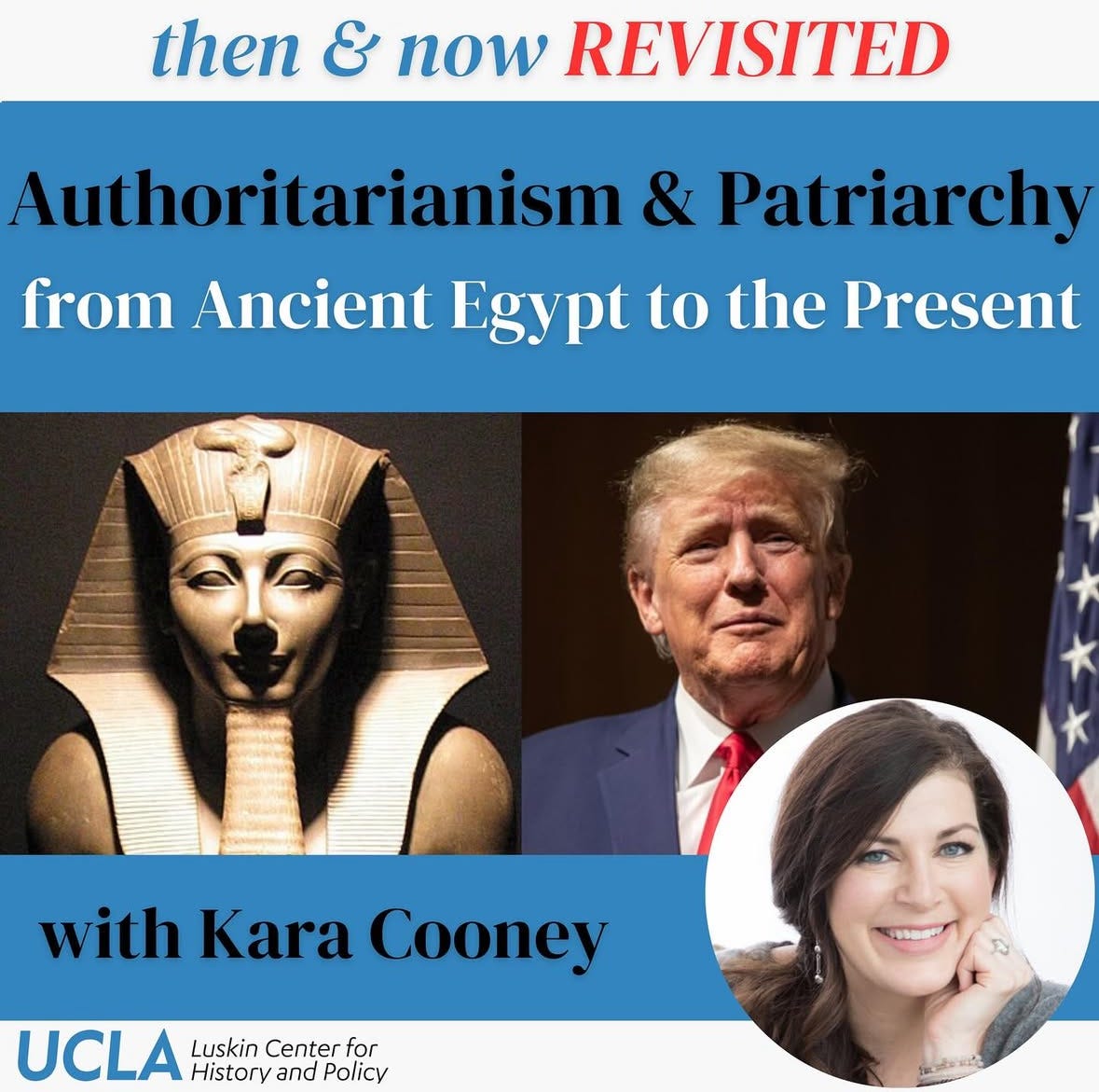Ancient/Now – Conversations with Kara
Don't miss these Zeitgeist-y discussions on ancient Egyptian authoritarianism, patriarchy, and what coffins reveal about crisis and collapse in ancient Egypt
Everyone’s talking about it. The collapse of checks and balances in government. Executive orders. Rule by Fiat. Strong Men. Authoritarianism. As government agencies and support systems are dissolved before our eyes to serve the mega wealthy, many are asking what is coming next.
Ancient Egypt went through many cycles of increased authoritarianism over its 3000 year Pharaonic history, allowing us to recognize that rampant absolute power is often a marker of oncoming systems collapse. Ancient Egypt was ruled by a king, yes, and kingship is arguably the most authoritarian form of political power in existence. But even ancient Egypt functioned best when that executive power was tempered by a strong base of elite cooperative power. When Egypt’s decentralized elite was devalued and cut down by absolute monarchs, societal collapse was never far away. And it was in those moments of collapse that Egyptian society remade itself, finding ingenuity, solutions, negotiation, deal making, and new, shared power.
Ancient Egypt can teach us how to stare down the gun of authoritarianism and see if for what it is, so that we don’t try to use 19th Dynasty solutions for 20th Dynasty problems. These ancients can help us to build something new and sustainable from the ruins of the social systems all around us, creating work arounds for housing, healthcare, childcare, education, and public safety. This is a time to pay close attention to creative workarounds, rather than give in to despair at what we are losing.
This Luskin Center podcast will hopefully help you to find some hope in the ruins that are growing in your neighborhood…
“Then & Now” Revisited — Authoritarianism & Patriarchy
Back in March 2023 Kara sat down with Dr. Rose Campbell (Assistant Director, Luskin Center for History and Policy) for a podcast interview on how and why authoritarian, populist leaders from ancient Egypt to the present rise to power and sustain their rule—a topic that seems more timely than ever. She recently revisited this discussion on Instagram with undergraduate Emily Bejanyan of the LCHP and explored how authoritarianism in the past relates to current challenges and policy debates.
Coffin reuse, crisis, and collapse in ancient Egypt
Last month Kara joined Lauren Fonto (Heritage and Cultural Sciences: Heritage Conservation at the University of Pretoria, South Africa) to talk about her book Recycling for Death and what coffin reuse reveals about crisis and collapse in ancient Egypt.











While I find the core values of Ma'at to be more or less commensurate within a classical liberal framework, I am always wary of trying to compare Pharaohs to Presidents. A feudal agrarian theocratic monarchy in the bronze and iron ages is so far removed economically and politically from a 21st century market oriented representative republic, that direct parallels become almost arbitrary. This is especially the case when evaluating current policies.
For example, while opponents of the current administration's policies see an unstable tyrant running roughshod over good governance forged by an educated and enlightened consensus in Washington DC, proponents support these changes precisely because they want to reduce and decentralize what they see as authoritarian overreach by the federal government. They too will point to wealthy boogeymen; only this time it's lobbyists, or heads of NGOs and corporations, who collaborate with the bureaucracy to mutually enrich each others' power and money.
Both seem to use the language of freedom versus authoritarianism in our American culture. Meanwhile, when I see lamentations and admonitions in Egyptian literature against their rulers and officials, they use their own cultural language of criticizing for dishonesty and corruption rather than the scope and size of government. I have seen complaints about taxes being too high as well in the ancient ritings; some things never change, but at least Pharaoh's supplicants, courtiers and hangers-on were more obvious in their flattery ;)